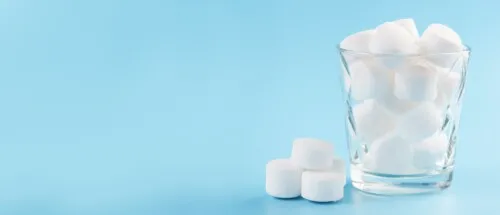We all want clean, safe, easily accessible drinking water. But when it comes to how we get it, there’s often confusion… and a lot of plastic. For some, bottled water seems like the simplest solution. Others invest in home filtration to ensure water safety and taste. At Leaf Home, we help families across North America improve their home water quality every day, from understanding types of water filters to installing custom systems that fit their needs.
In this guide, we’ll break down the differences between bottled and filtered water – looking at cost, safety, environmental impact, and more. Whether you’re worried about contaminants or simply want to know which option is more sustainable, we’ll walk you through the facts and help you make the right call for your household.
In This Article
- What to Know About Bottled Water
- Understanding Filtered Water
- Why Not Tap Water?
- Making the Right Choice for Your Home
- Frequently Asked Questions
What to Know About Bottled Water
From gas stations to grocery store shelves, bottled water is everywhere, and it’s often seen as a quick, clean option. But not all bottled water is the same. Some come from natural springs or wells, while others are simply filtered tap water. Look for terms like “spring,” “purified,” “mineral,” or “artesian” on the label—each describes a different source and treatment process.
In the U.S., bottled water is regulated by the FDA, but testing isn’t as frequent or rigorous as it is for tap water, which is overseen by the EPA. That means quality can vary depending on the brand.
The Importance of Disinfecting Drinking Water
Clean water starts with disinfection. Since the early 1900s, U.S. cities have used chlorine, and later chloramine, to kill harmful bacteria and viruses in public water supplies. Chloramine lasts longer in pipes, helping keep water safe as it travels from treatment facilities to your tap.
Pros of Bottled Water
Bottled water is popular for a reason. It offers several immediate benefits:
- Convenience: Ready to drink straight from the bottle, with no setup or preparation required.
- Portability: Easy to carry in a bag, lunchbox, or car. Great for on-the-go hydration.
- Long shelf life: When stored properly, most unopened bottles last up to two years.
- Variety: Available in different sizes, brands, and even enhanced options like flavored or vitamin-infused water.
Cons of Bottled Water
Plastic waste: Most bottled water comes in single-use plastic. Did you know that over 100 million plastic bottles are used each day in the U.S.?
Ongoing cost: A few bottles a week might not seem like much, but for multiple family members, that cost can climb quickly over time.
Microplastics and contaminants: Studies have found microplastics in nearly all leading bottled water brands. These are tiny plastic fragments that can come from packaging, bottling equipment, or the water source itself. In some cases, researchers have also detected chemical pollutants (like phthalates and industrial residues) that can leach from plastic containers into the water, especially when bottles are exposed to heat or stored for long periods. While the long-term health effects of ingesting microplastics are still being studied, their widespread presence raises serious questions about water quality and safety.
Understanding Filtered Water
Filtered water is tap water that’s been treated to reduce impurities. This process can improve taste, remove harmful substances, and give homeowners more control over their drinking water quality. Unlike bottled water, which is treated at a facility and sealed in plastic, filtered water is cleaned at the point of use, right in your home.
There are several types of filtration methods:
- Activated carbon filters (like those in pitchers and faucet attachments) help remove chlorine, odors, and some volatile organic compounds (VOCs).
- Reverse osmosis (RO) systems push water through a semi-permeable membrane to remove lead, fluoride, nitrates, PFAS, and more.
- Distillation uses heat to turn water into steam, separating it from contaminants.
Each method has strengths, and many systems combine more than one to increase effectiveness.
Pros of Filtered Water
Filtered water offers a number of everyday benefits, especially for households that drink a lot of water.
- Cost-effective over time: While there’s an upfront investment in a home system, the ongoing cost per gallon is typically much lower than bottled water.
- Environmentally friendly: Filtering tap water drastically cuts down on single-use plastic and packaging waste.
- Custom protection: The right filtration system can target specific concerns, like lead, chlorine, PFAS, or sediment, based on your local water quality report.
With the right setup, filtered water delivers peace of mind, better taste, and real savings.
Cons of Filtered Water
Like any home system, filtration comes with a few responsibilities:
- Initial setup and maintenance: Some systems, especially under-sink or whole-home models, may need professional installation.
- Filter replacement: To keep your water safer and cleaner, filters must be changed regularly; typically every 6 to 12 months, depending on use and system type.
- Performance varies: Not all filters remove the same contaminants. Effectiveness depends on the quality of the system, untreated water and whether filters are replaced on time.
That said, many homeowners find the tradeoff worth it, especially when health, taste, and environmental impact are top of mind.
Cost Comparison
Bottled water costs can add up quickly, especially for larger households. Even modest daily use translates to hundreds of bottles a year. Filtered water, on the other hand, requires an upfront investment in a system, but the cost per gallon is significantly lower over time. It’s a smarter choice for frequent water drinkers.
Environmental Impact
The environmental toll of bottled water is hard to ignore. Billions of single-use plastic bottles end up in landfills and waterways every year. Add in the energy used for packaging and transportation, and the carbon footprint grows even more.
Filtered water systems help reduce that impact. While filters do require replacement, the overall waste and emissions are far lower, making it a more eco-conscious option.
Health and Safety
Studies have found microplastics in nearly every bottled water brand tested. While research is still ongoing, experts agree their presence is concerning.
Meanwhile, filtration systems can remove a wide range of known contaminants, including lead, chlorine, and PFAS. And since filters can be tailored to your local water conditions, they provide more customizable protection.
Why Not Tap Water?
In many areas, tap water is safe to drink. It’s regulated under the Safe Drinking Water Act and monitored by the EPA for contaminants like bacteria, nitrates, and heavy metals.
However, “safe” doesn’t always mean ideal. Recent reporting from CNN shows that more than 320 million Americans may be drinking water containing PFAS, also known as “forever chemicals” due to how long they linger in the body and the environment. These chemicals aren’t always removed by standard municipal treatment and are being studied for potential health impacts.
Many homeowners notice issues like unpleasant taste, odor, cloudiness, or discoloration. In some states, aging pipes or outdated infrastructure can increase the risk of lead or other contaminants.
For these reasons, many families choose to filter their tap water. This improves quality, taste, and peace of mind.
Making the Right Choice For Your Home
When choosing between bottled and filtered water, there’s no answer that’s right for everyone. Your lifestyle, water source, and personal values all matter.
If you’re constantly on the go or need backup water for emergencies, bottled water can be a practical solution. It’s portable, long-lasting, and easy to find.
But for daily use, a whole home filtration system may offer better value, fewer contaminants in your water, and a smaller environmental impact. It can also be more adaptable by letting you target specific concerns in your local water supply.
At Leaf Home, we know that water quality matters. That’s why we offer tailored filtration systems designed to work with your household needs, so you can enjoy cleaner, better-tasting water straight from the tap.
Learn more about Leaf Home Water Solutions.
Frequently Asked Questions
Is bottled water safer than filtered water?
Not necessarily. Bottled water is regulated, but quality varies by brand. Filtration gives you more control over what’s removed from your tap water.
Can filtered water remove all contaminants?
No single system removes everything, but reverse osmosis and multi-stage filters can eliminate many common contaminants. Choose based on your local water quality report to ensure your system targets the right issues.
How often should I replace my water filter?
Most replaceable filters (like carbon or sediment cartridges) need changing every 6–12 months depending on usage, while RO membranes typically last 2–5 years. Always follow manufacturer recommendations to maintain performance.
What is the environmental impact of bottled water?
High. Most bottled water comes in plastic that ends up in landfills or oceans. The production and transport process also consumes energy and resources. Producing a single liter can use up to three liters of water and require the equivalent of 2.5 liters of oil. Transportation adds to carbon emissions, and bottles are now among the top plastic pollutants found on shorelines. Compared to filtered tap water, the environmental footprint is significantly larger.
Are there health risks associated with bottled water?
There may be. Studies have found microplastics in nearly all bottled water brands tested, with some bottles containing over 300,000 particles per liter. Researchers have also detected chemical residues like phthalates and bisphenol A (BPA) that can leach from plastic packaging, especially when bottles are stored in warm or sunny conditions. While long-term health impacts are still being studied, early research suggests these substances may affect hormone function, metabolism, and inflammation. It’s one more reason many families are choosing to filter their water at home.



